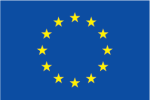The study was based on a survey of 1336 PhD students. The participants were located in Denmark, Hungary, Ireland, Portugal, and Switzerland and came from a wide range of research fields. In the survey participants were asked if they had granted at least one co-authorship to a person in power even though the person had not made a significant contribution to the study. More than one third of the participants said yes.
The study also revealed major differences across faculties. The problem with guest authorships is biggest in the medical sciences, where 49% of the Ph.D. students had granted a guest authorship to a person in power. In the natural and technical sciences (STEM) it was 42%. In the other faculties, it was much less.
PhD students who had granted a guest authorship to a person in power were also asked why they had done it. To this, 49% responded that they had been told to do so by the person in power as at least a partial reason (14% gave this as the only reason). Furthermore, 46% of the participants had granted a guest authorship because they wanted to maintain a good relationship with the person in power, and 39% gave “everyone else in my field does it” as a (at least partial) reason.


Leave a Reply